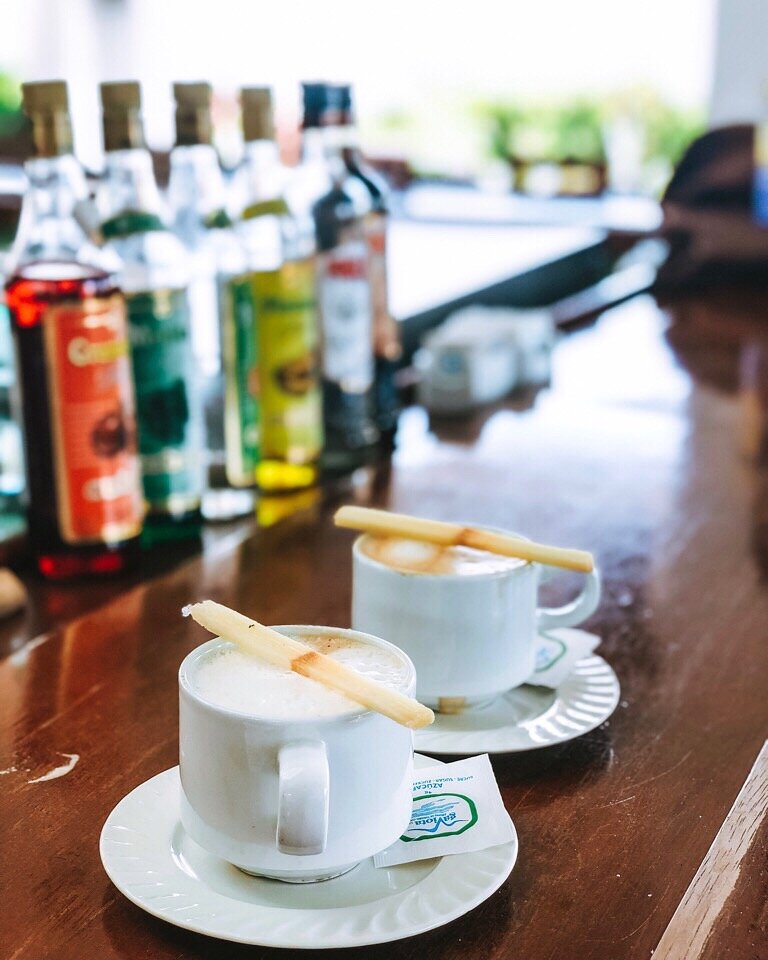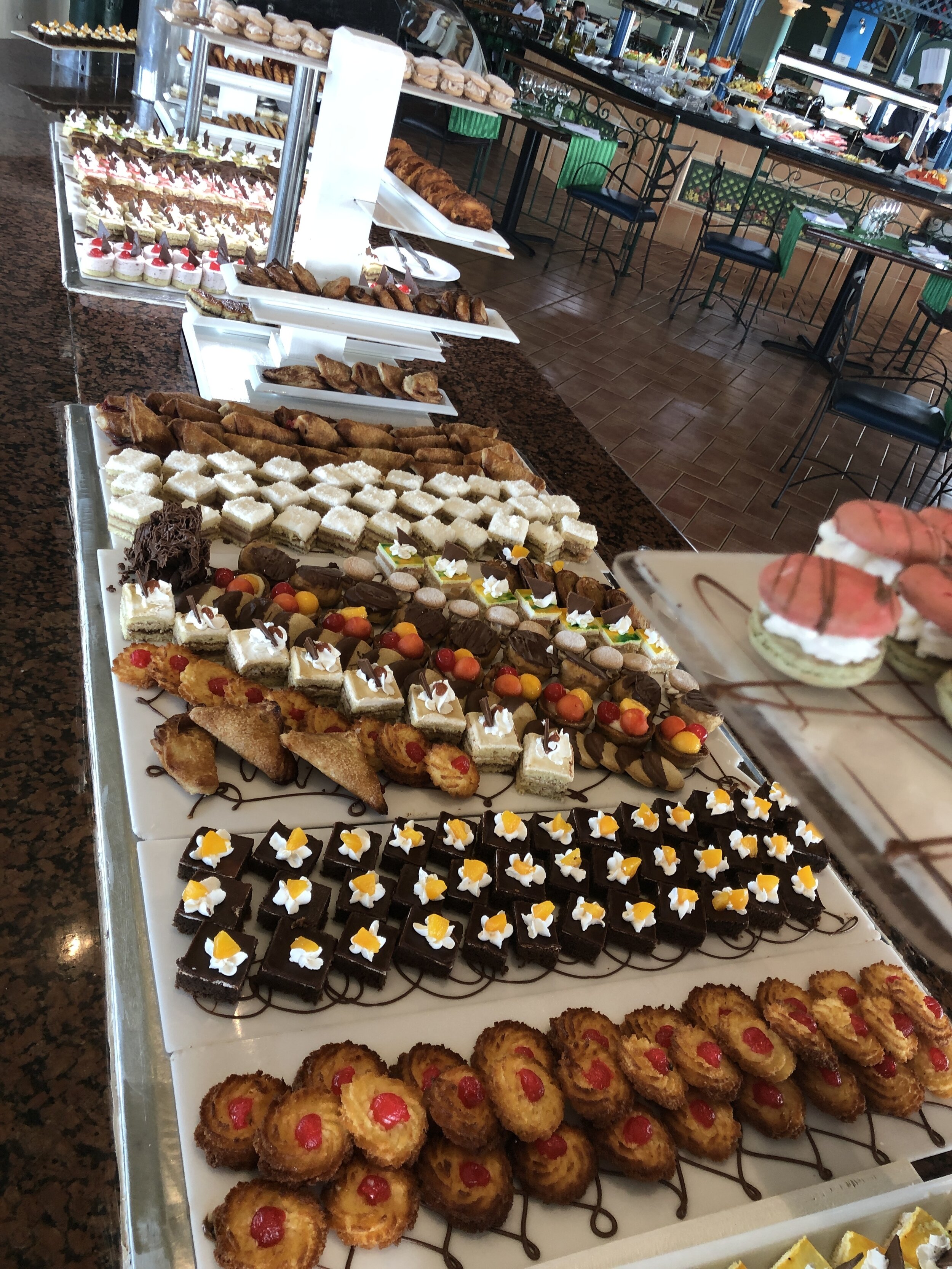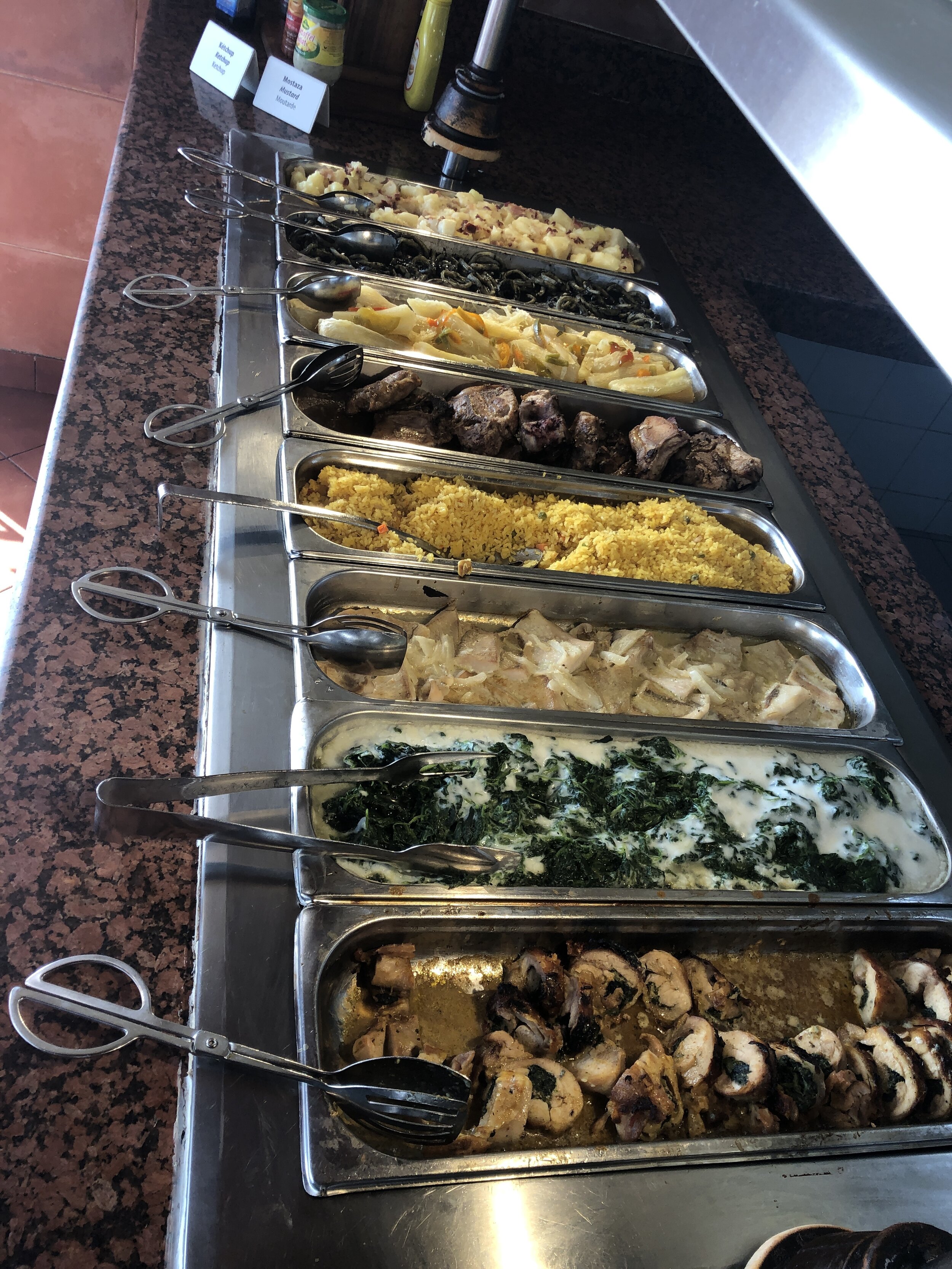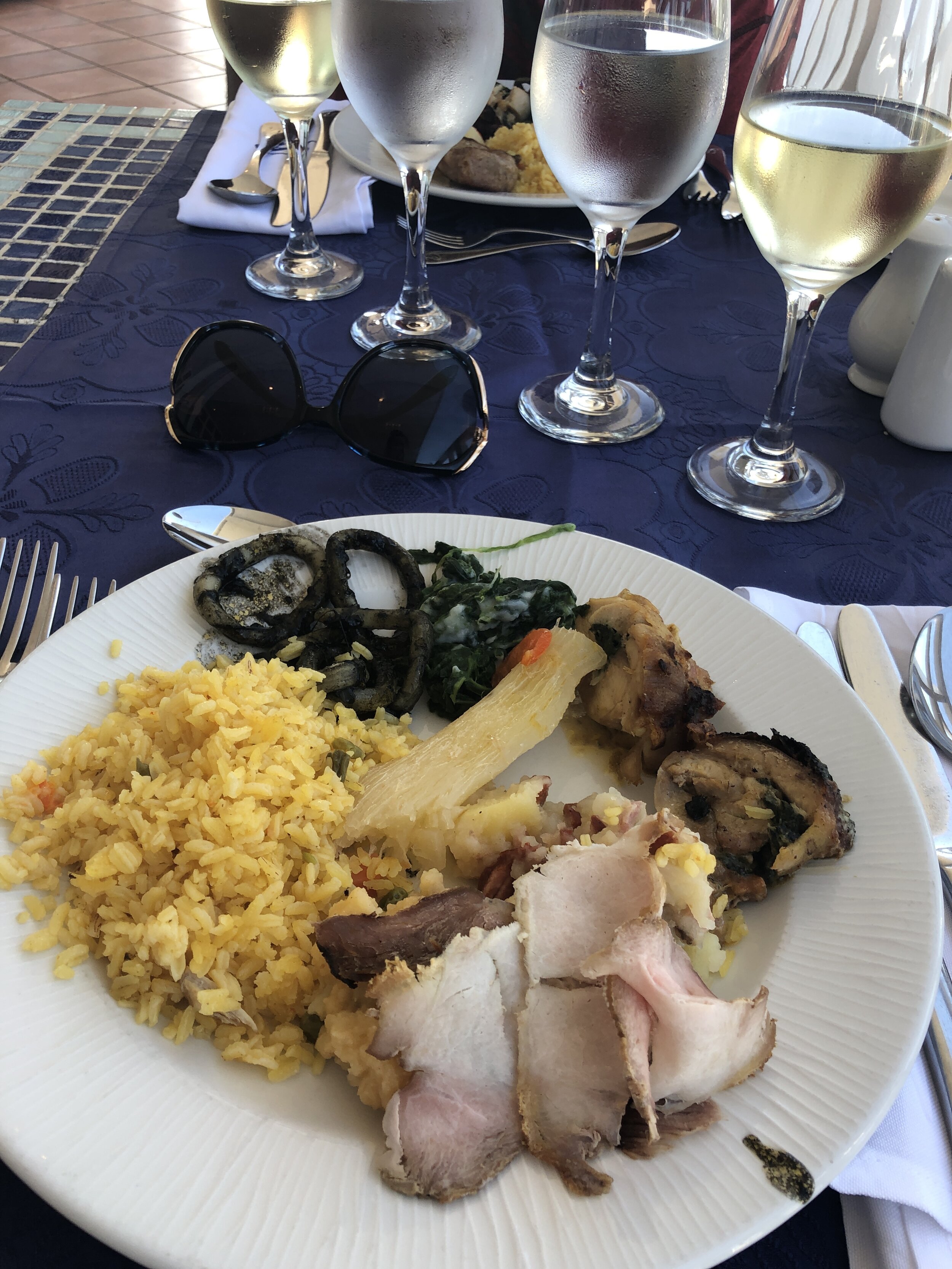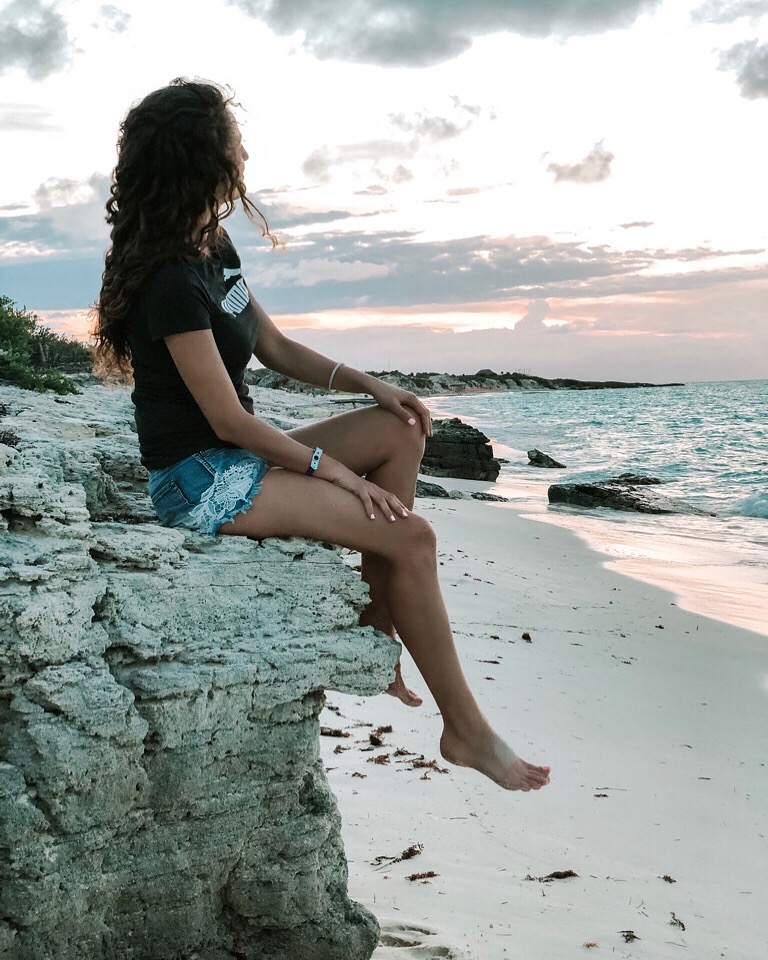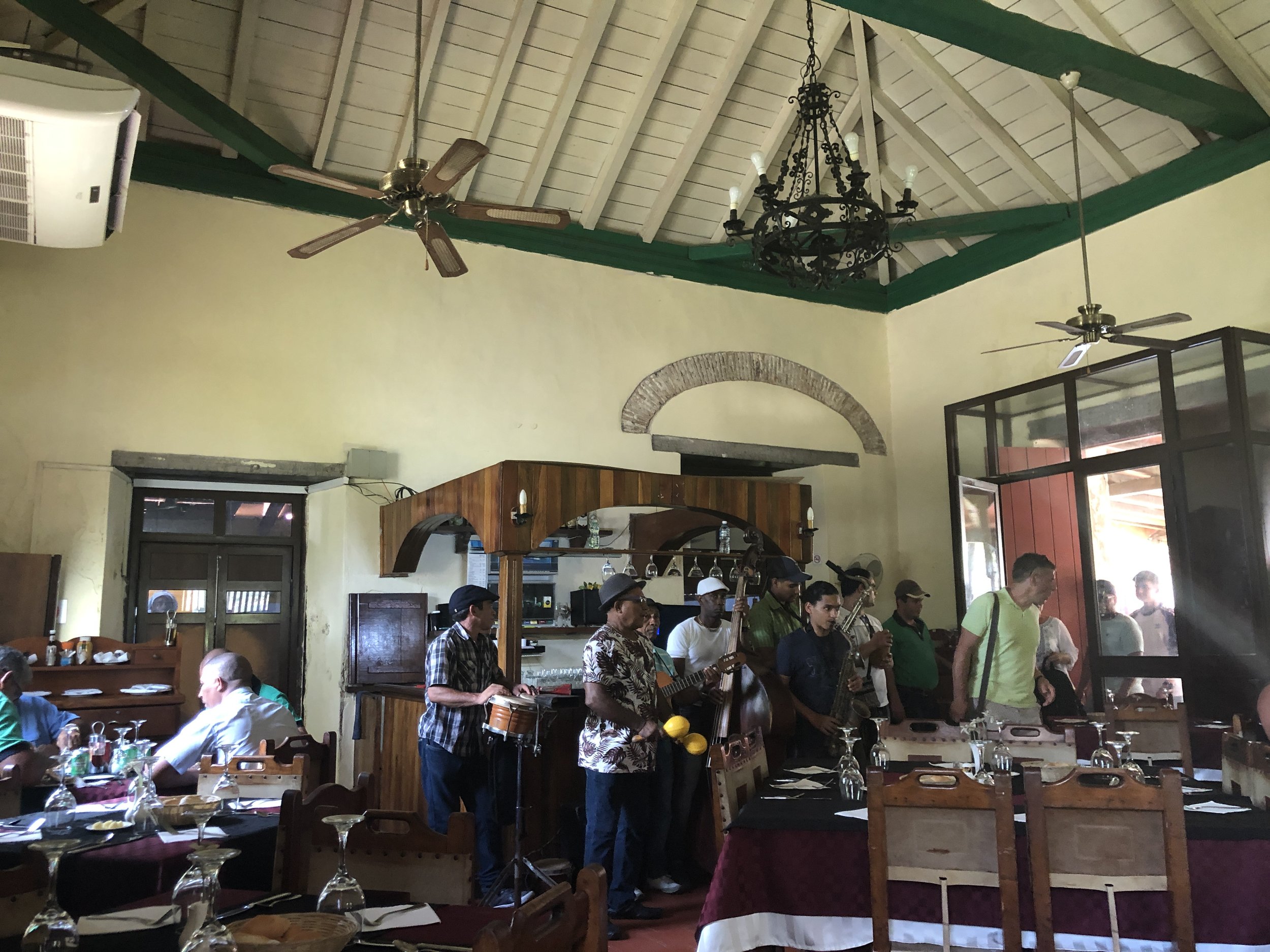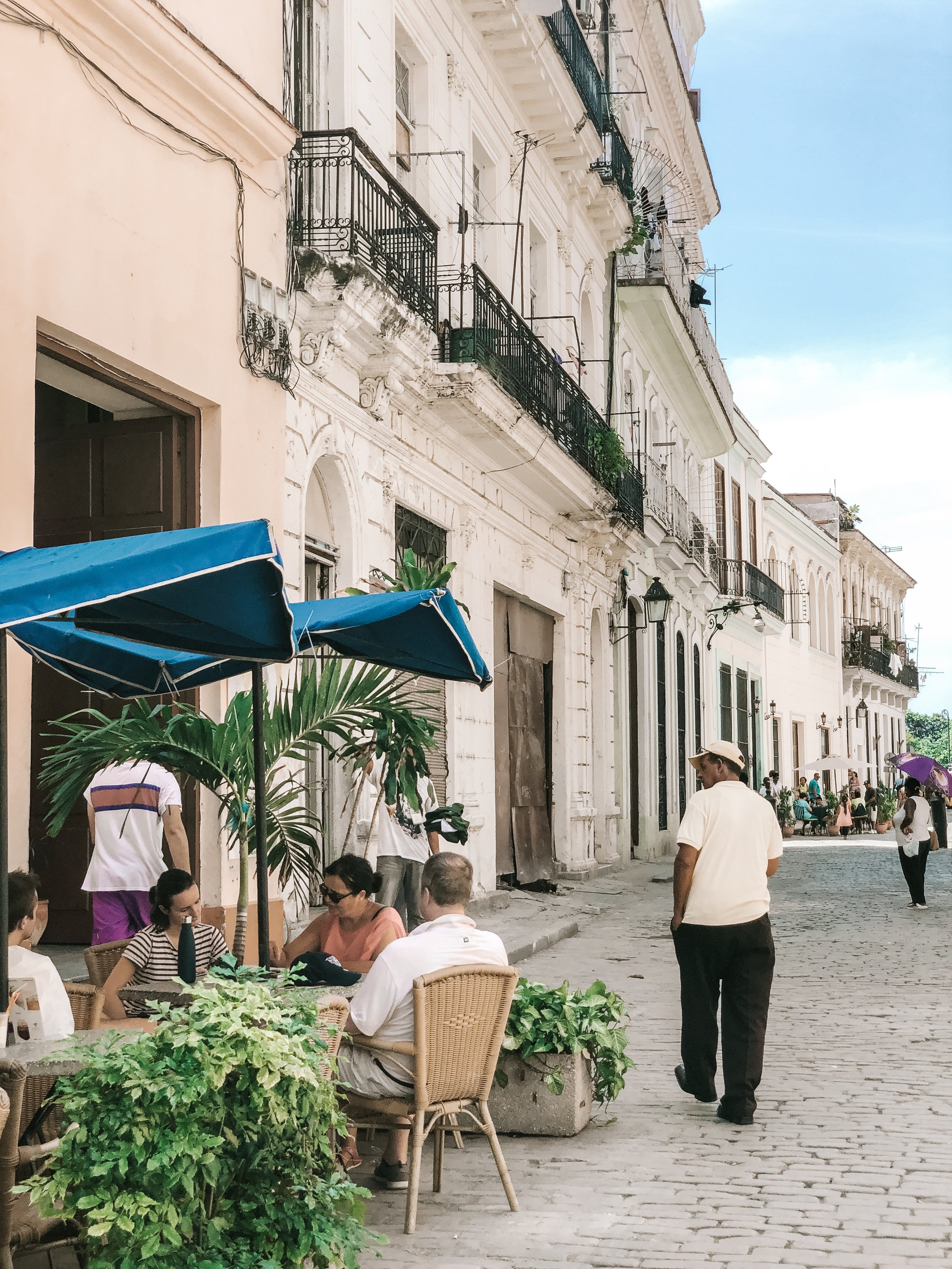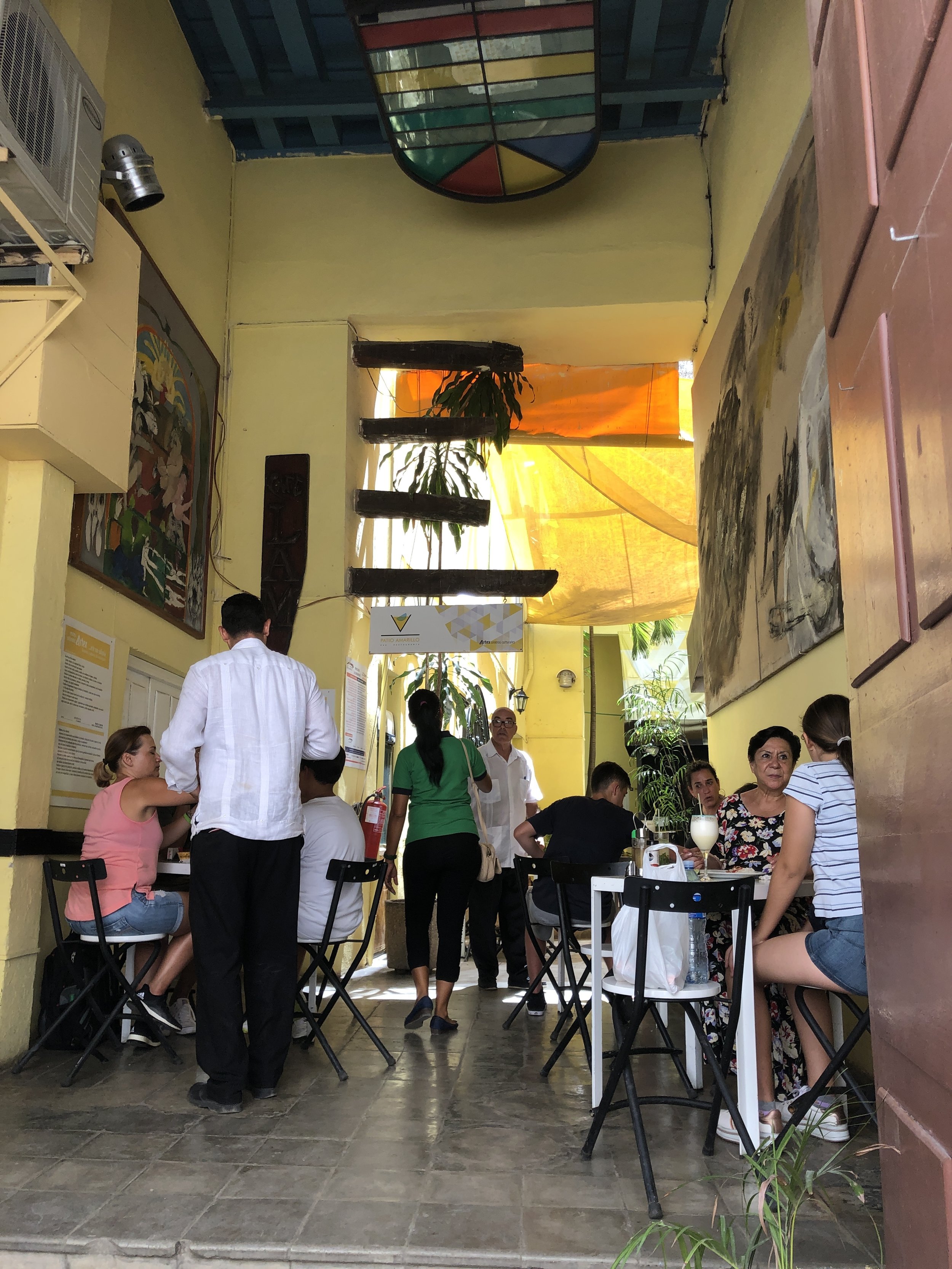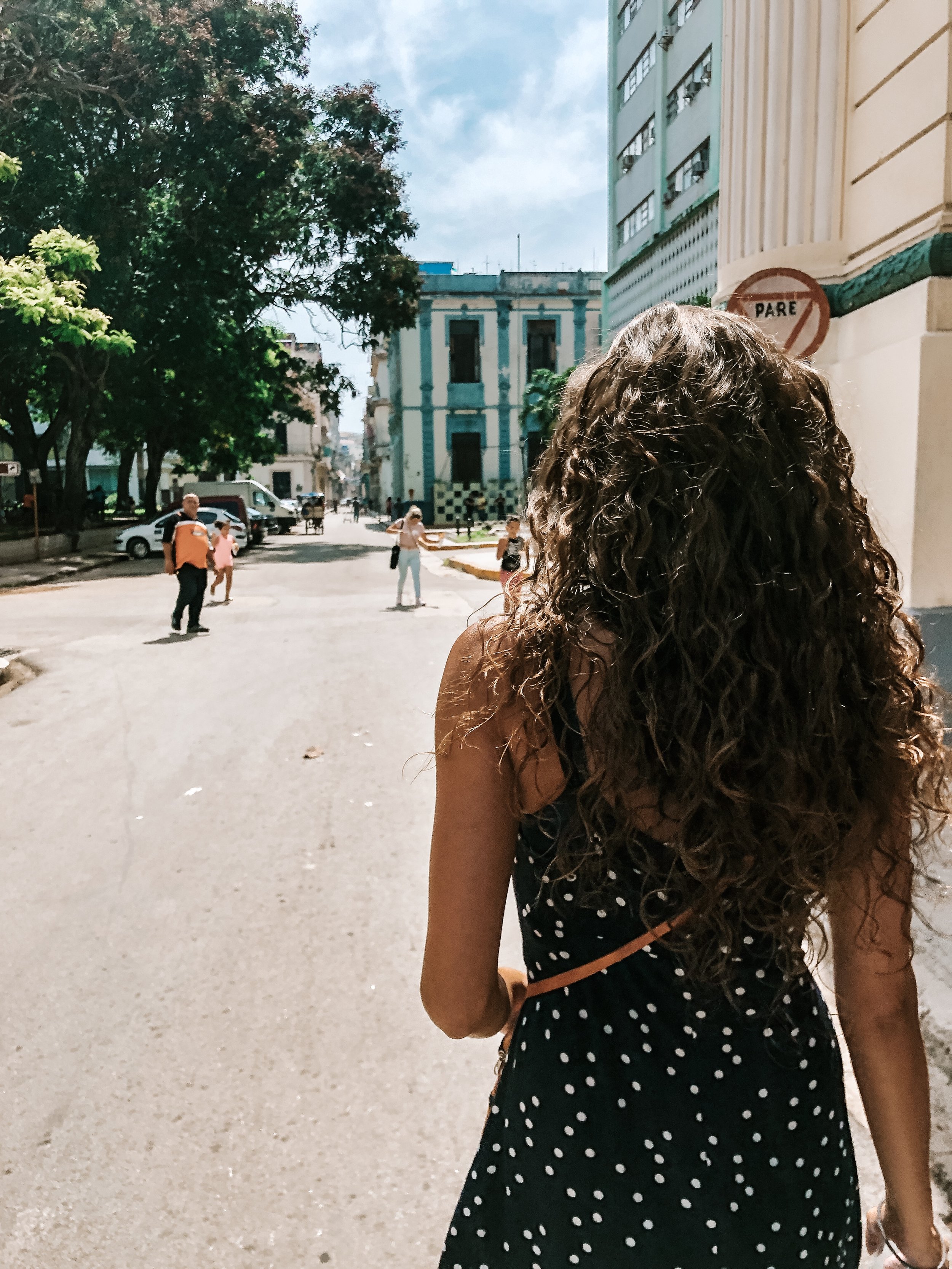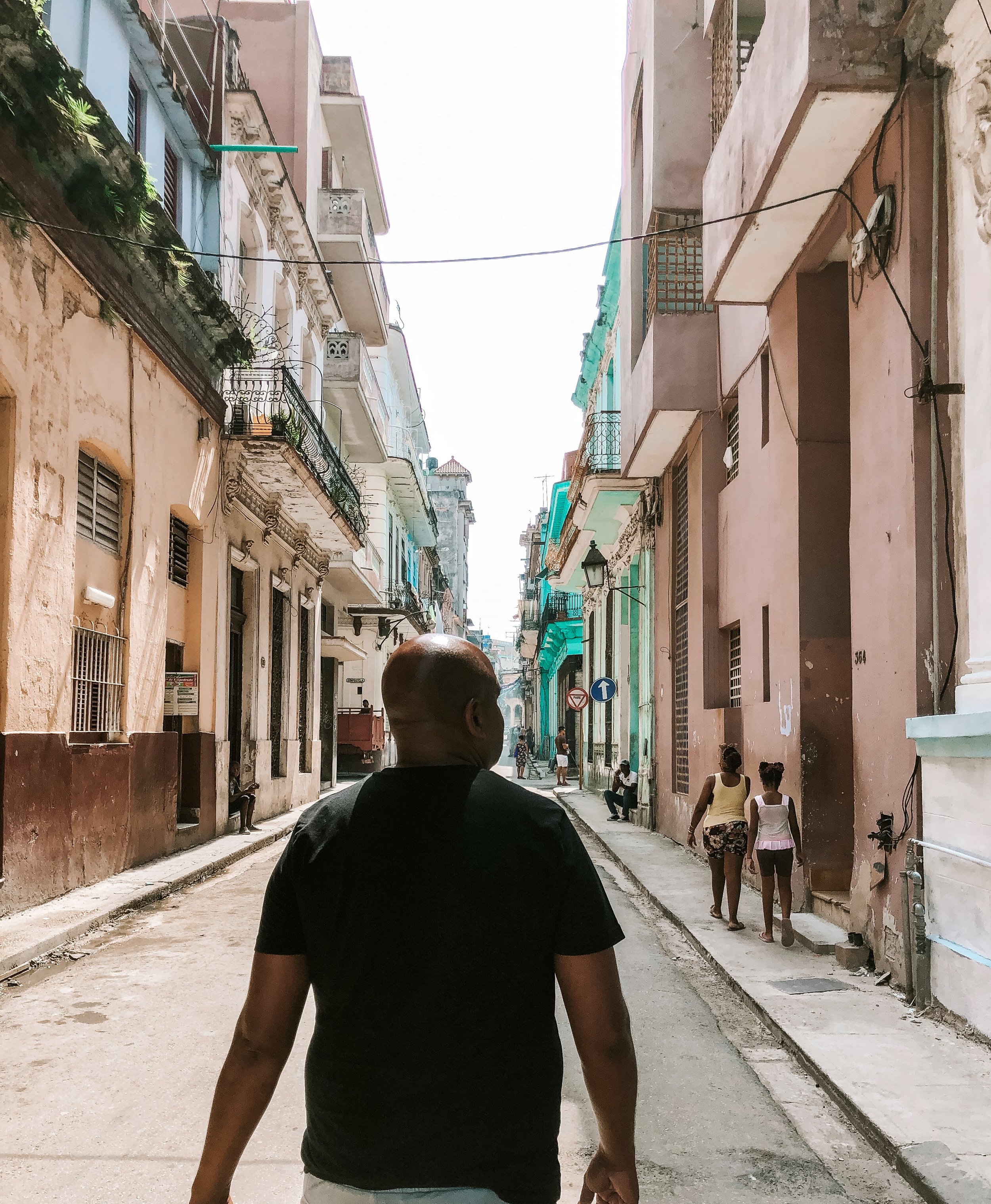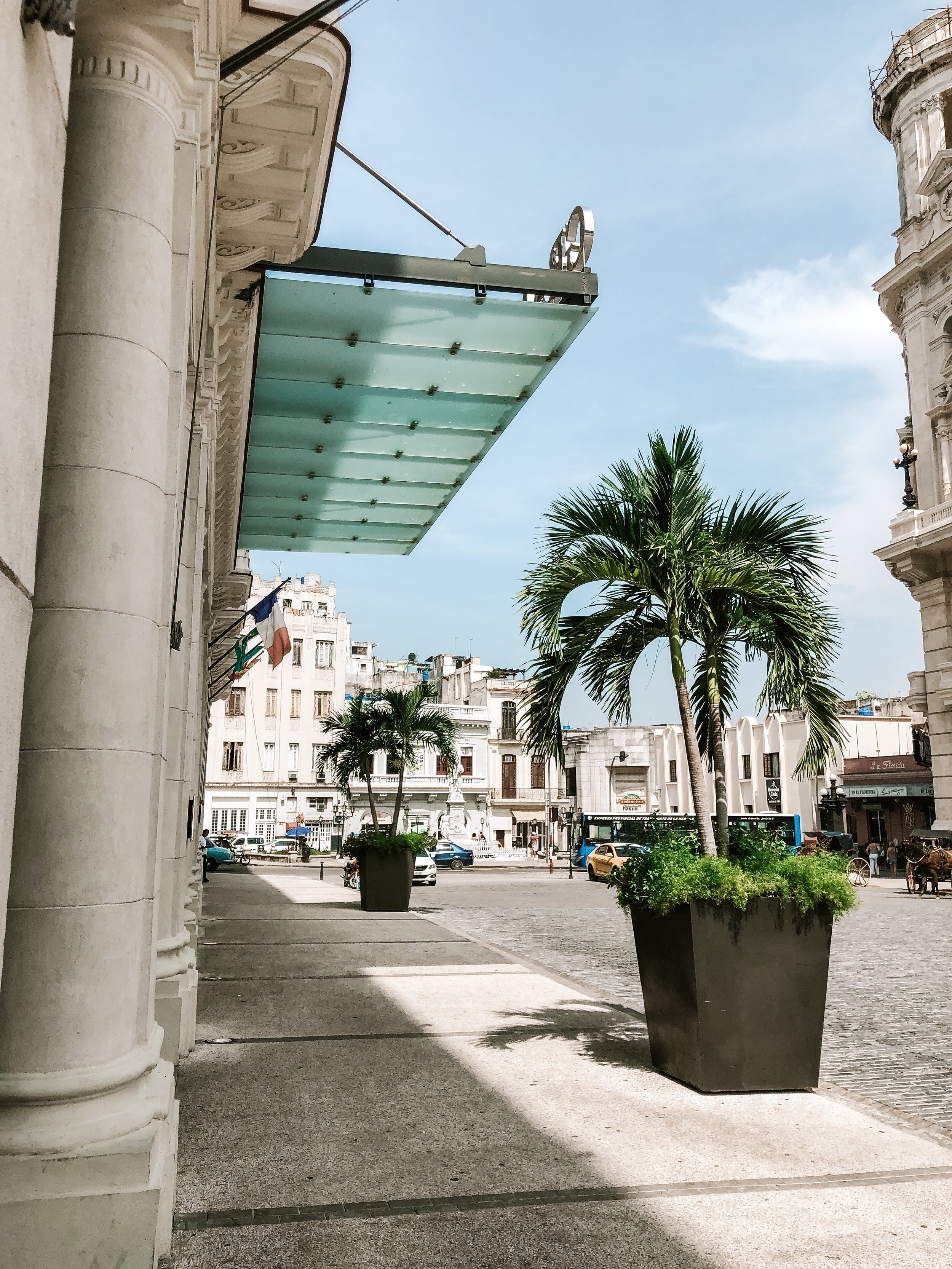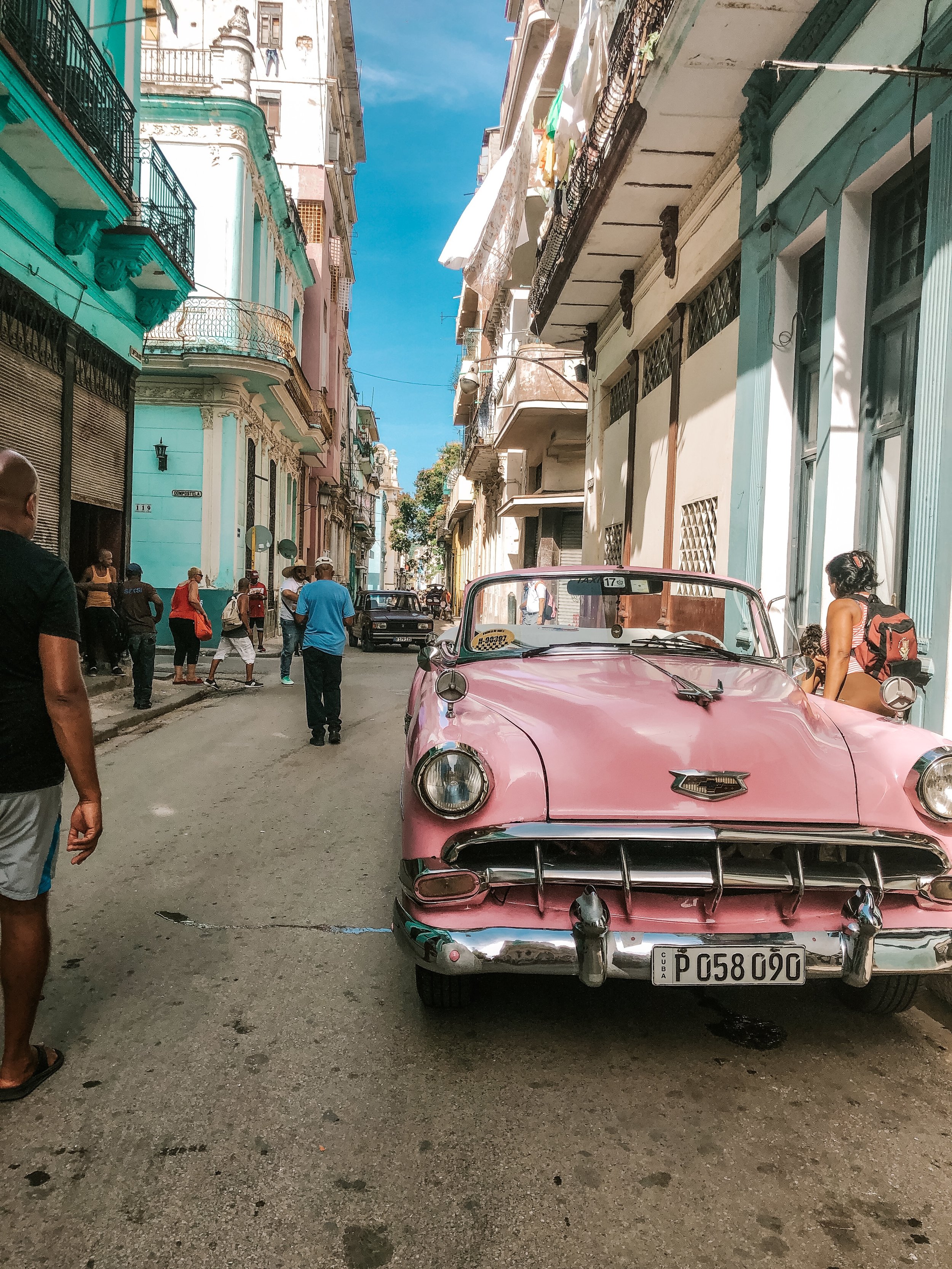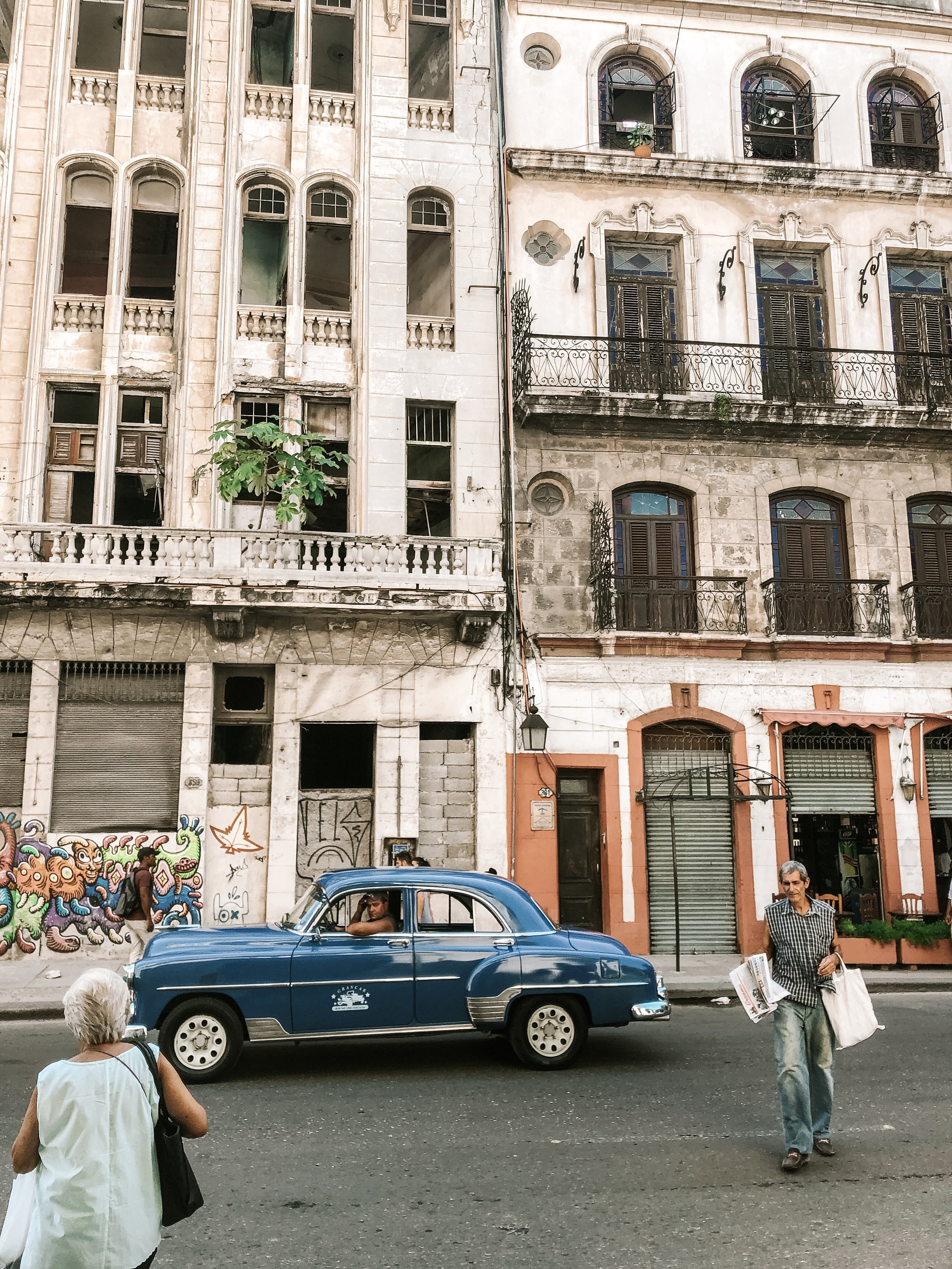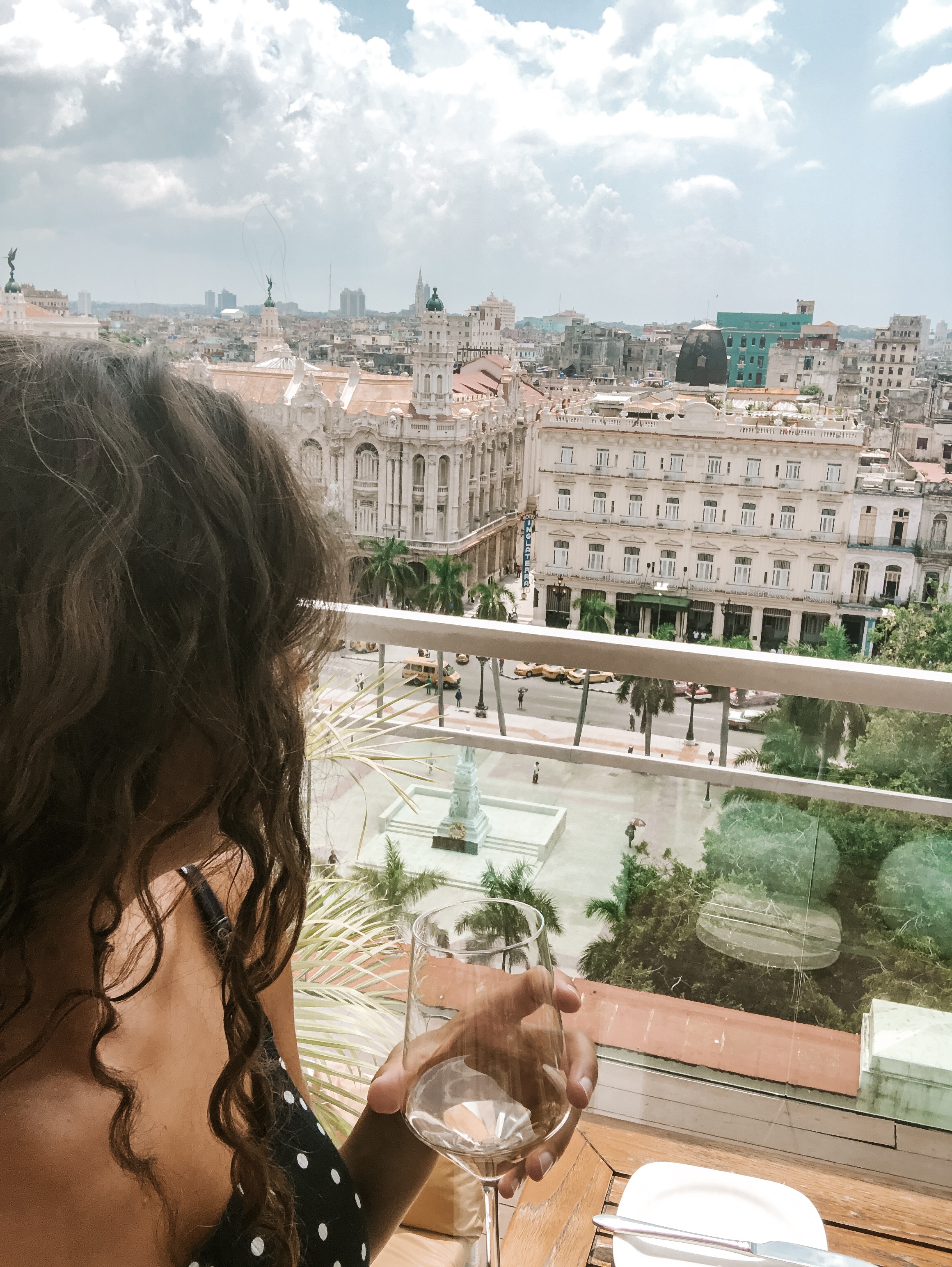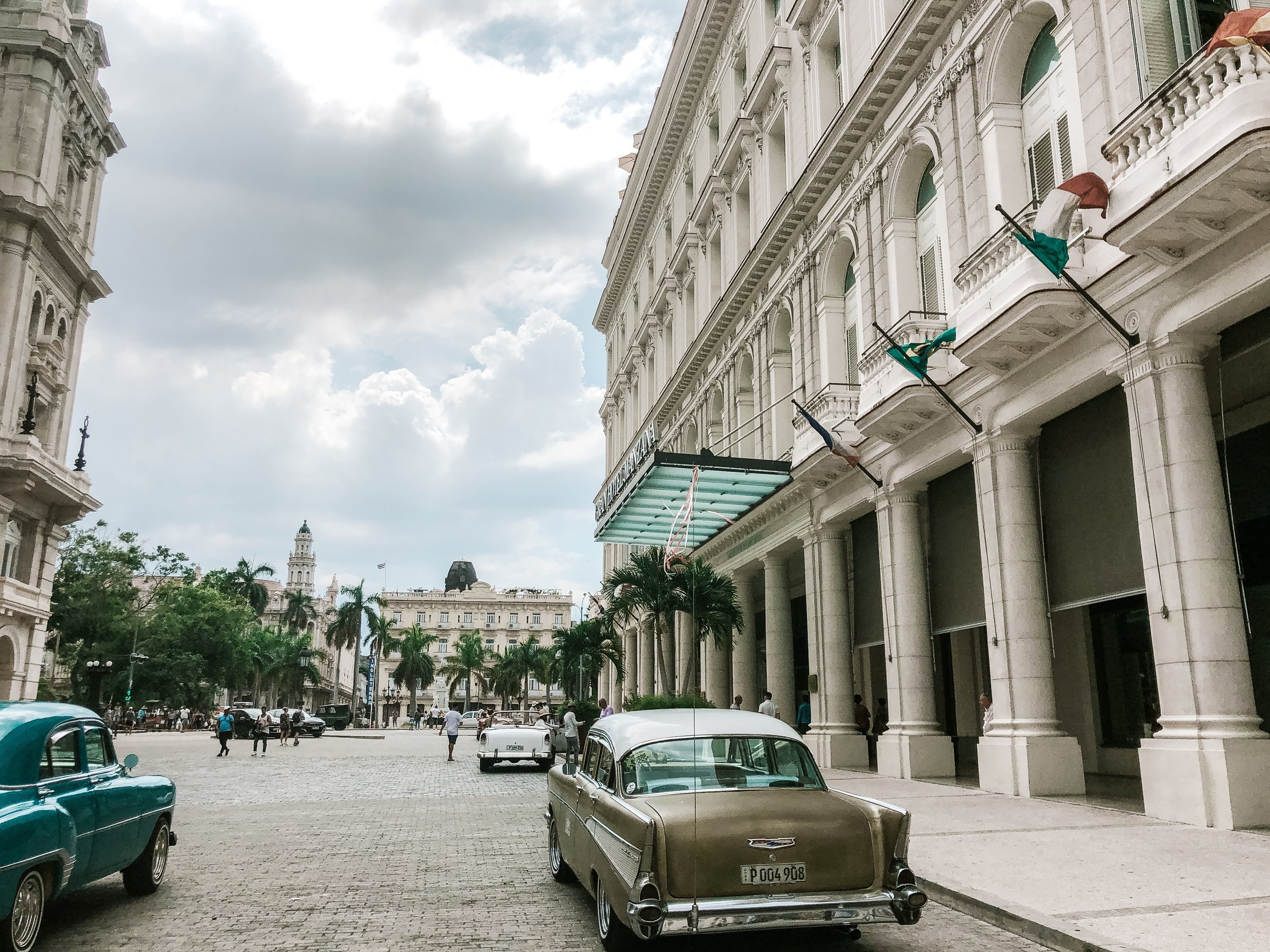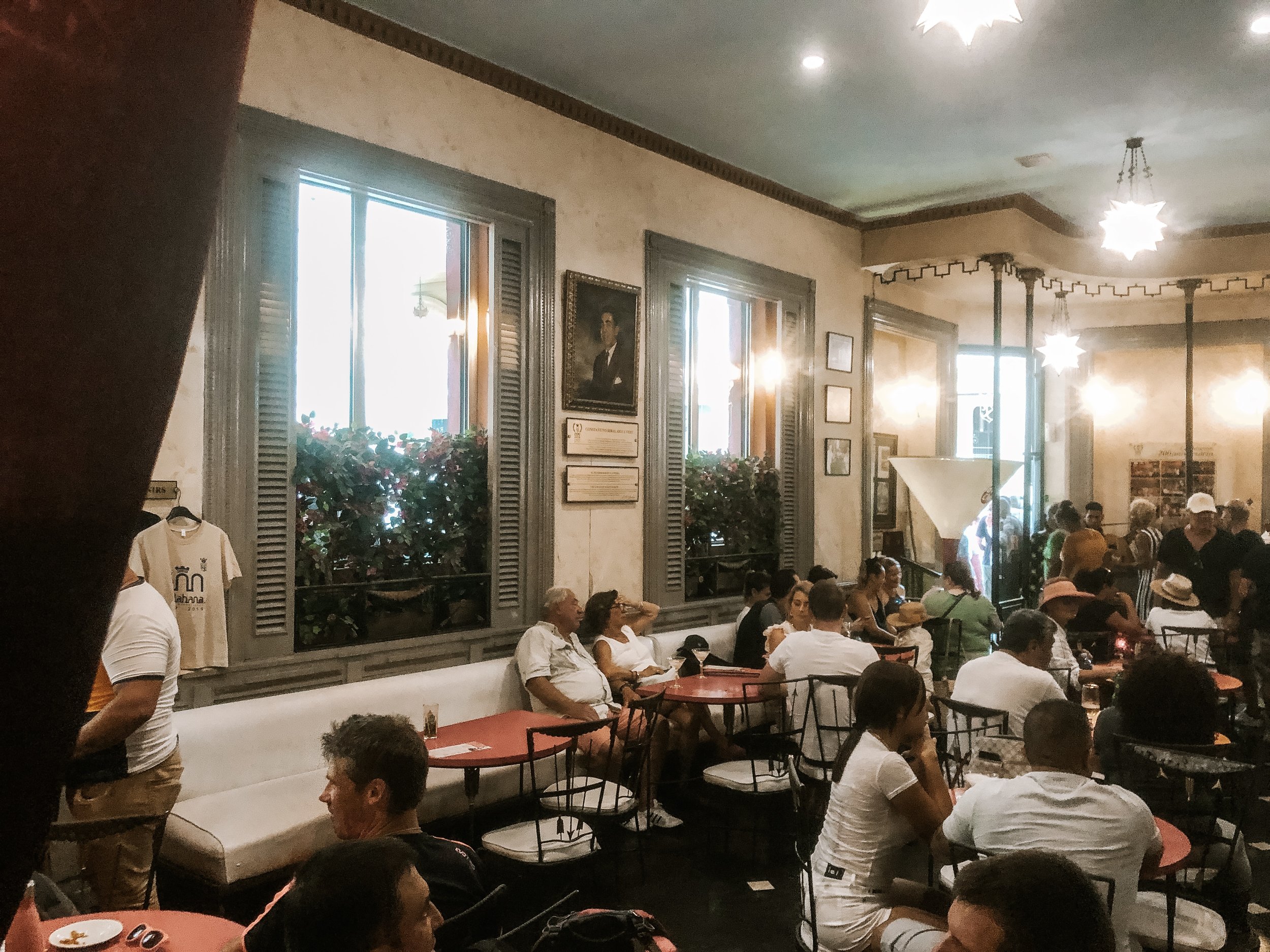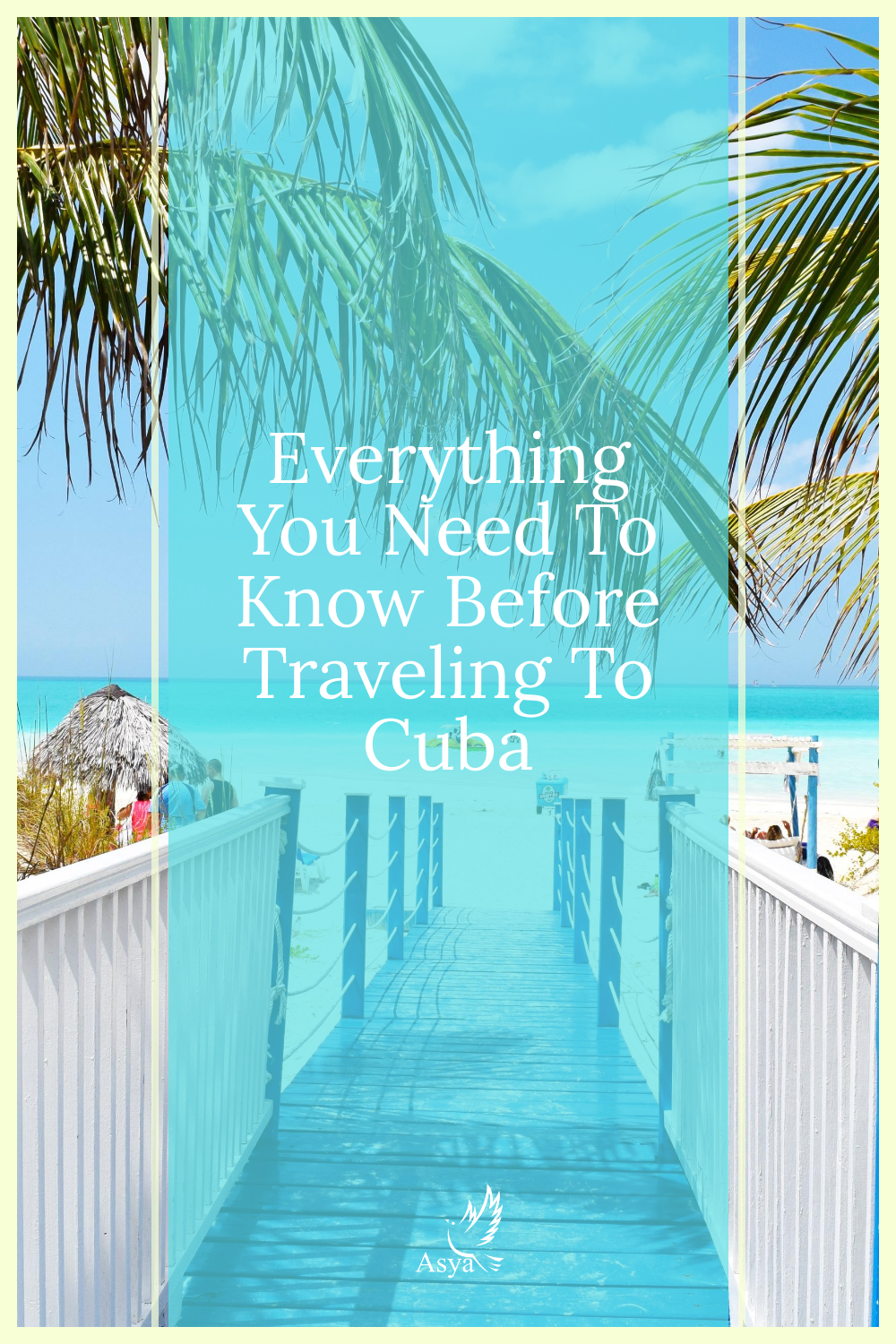Everything You Need to Know About Traveling to Cuba
Whether this is your first trip to Cuba, or you’ve been there before, keep reading because I am sharing everything you need to know before you travel to Cuba, so you can have a great stress-free time!
I have been to Cuba 5 times already for no less than 7-10 days at a time and the 15 tips below are the most important things you need to know when travelling to Cuba.
1. Currency – CUC
Cuba has 2 currencies: CUC (Cuban convertible peso) & CUP (Cuban national peso). Tourists can only use the convertible peso (CUC) and when you exchange money you don’t have to distinguish this because you will automatically be given the CUC. 1 CUC = 1 USD but if you exchange at your hotel you will likely be given 1 CUC for 1.34 USD. The rate will be a bit better at the airport.
The Cuban government is working on eliminating the CUC but you don’t have to worry about that right now because it won’t happen for a long time.
*When exchanging cash or doing a withdrawal from your credit card or bank at the airport, hotel or bank you will always need your passport*.
If for some reason you run out of CUC but you have USD, most local merchants will take your currency at the accurate exchange rate. We figured this out when we went to Plaza La Estrella in Cayo Santa Maria. We were shopping and we ran out of CUC and tried to exchange USD at the bank but didn’t have our passports. One of the merchants told us that most merchants will accept US cash and that’s how we finished doing more shopping.
2. Take Cash
Cash is King in Cuba. Depending on how much you plan to spend, you can take cash for the first half of your trip and withdraw more later. When you land in Cuba before you leave the airport, make sure you exchange your cash since they give the best exchange rate.
Pretty much all hotels have a Cadeca (currency exchange) but the exchange rate is worse then the airport. Most places don’t take credit or debit cards and most of the country operates on cash.
Make sure you always get small bills including lots of 1s to use for tipping, since most people won’t have change to give you.
3. No International Banking
We learned this the hard way on our trip to Cayo Santa Maria, Cuba. We tried to do an email money transfer from one account to another, didn’t work, we tried to pay a bill, didn’t work. When I called the bank, the agent told me that I can only login to check my balance but because it’s a sanctioned country they can see the IP address and it blocks you from doing any sort of banking.
**Also, if you bank with Tangerine you can’t withdraw money at a bank or ATM so bring all the cash you need!! Again, I learned this the hard way.
If you bank with TD Canada Trust you can withdraw money at any bank or ATM. I am not sure about other banks, but you should be pretty safe however I suggest to call and ask before you leave.
4. Electricity - Do You Need an Adaptor?
In Cuba the power outlets are 220V but in North America we use 110V. This one was tough because I wasn’t sure if our hotel had dual voltage plugs. Some hotels do have dual voltage plugs but the 110V in outlets in the bathrooms are for shavers only. Check the plugs on your electronic devices like your iPhone charger because most new ones you can use between 110 – 220 voltage outlets.
When we went to Cayo Santa Maria our hotel had dual voltage outlets everywhere but when we were in Varadero the hotel we stayed at did not, so I recommend bringing at least 1 adaptor because you never know for sure until you get there. Luckily in Varadero out hotel butler gave us one to use.
5. Tourist Ticket/Visa & Departure Tax
When you land in Cuba you will need a tourist ticket/visa no matter what passport you have. Most likely if you buy an All-Inclusive package, the cost is included in your ticket. If you just book a flight, confirm to see if this cost is covered other wise it will cost $10 to get one when you arrive.
We bought an All-Inclusive package through Sunwing and they handed this visa out on the plane to fill out. You need to present it at customs when you arrive and before you leave the country. Make sure you don’t loose it!
There is also a $25 mandatory departure tax you need to pay. This is most likely included in your flight ticket cost but again double check this. Several years ago, they collected this in cash before you left the airport.
6. Health Insurance
This is now mandatory for all tourists to present proof that you purchased health insurance. If you didn’t, customs will make you purchase it before you enter the country. We were told this prior but, customs never checked this or asked for proof but better safe than sorry.
We always buy insurance through Bluecross because if you must go to a hospital or emergency you go to a private hospital and they will take you as priority. Also, they have the best coverage over any other company and you don’t ever have to pay out of pocket because the hospital bills Bluecross direct. They are by far the best travel insurance you can buy. This blog was not sponsored by them, I don’t work as an affiliate with them, I just have to share this info because we always use them, and they are really good.
7. Print All Your Travel Documents in Advance
Tech is hard to come by in Cuba also you should have your flight and hotel tickets and health insurance coverage printed.
8. Wi-Fi
You buy a card that is 1CUC per hour at your hotel and likely you will not get a connection everywhere. We could only use it at a few restaurants and the lobby, but the connection was only good in the lobby. It was not reliable and sometimes kicks you out and you must log back in.
This could be a great time for you to unplug from your phone & enjoy just being in the moment. That’s what we did.
9. International Calling
Do not use roaming and make sure you keep your phone is on airplane mode because it will cost you a lot of money. My recommendation is to use FaceTime Video or Audio, WhatsApp, Viber, or if you flew with Sunwing then download the Sunwing App and you can make calls using that app.
Another app you can use is called TextNow. Before you leave you can download it and it gives you a local phone number FREE. You can use this app to call any phone number even if they’re not in your contacts.
See my blog post on Best Apps to Use When Travelling for more details on TextNow.
10. Tipping
Tipping is customary in Cuba but not expected. If you feel you had good service even 2-3 CUC goes a long way for the locals. Most people make between 16-40 CUC per month which is equivalent to $16-$40 USD. So, locals who work in hospitality work for their tips. Life for Cubans can be expensive for things like cars, homes, travel, electronics and tech, make up, etc. things like education and healthcare are free but medications are not.
11. Travel & Airports
On your way to Cuba, you can check in online before your flight, use your Apple or Google wallet to scan your boarding pass but returning home from Cuba you will not be able to do that. It’s all manual.
Most Cuban airports are very small depending on which city you fly into and you may have only 1-2 places to get food, a currency exchange, 2-3 places to buy last minute souvenirs & 1 Duty Free. Varadero is a larger airport but Santa Clara was very small.
You can also pay 30 CUC per person to get access to the Airport Lounge which we did on our way home from Varadero & it was so worth it!! I was surprised that not a lot of people paid to use it.
You have everything complimentary – snacks, finger food, all drinks including alcoholic, strong AC, comfortable seating, newspapers and smoking area for those who smoke. You also get 1 hour free Wi-Fi!
12. Food in Cuba
We never had issue with Food in Cuba. I find the food very real and they don’t have high processed food that we’re used to in North America that’s why I find people complain about the food there. The food does vary at each hotel.
If you want, you can stay away from meat especially pork because its imported, but we did eat the meat. Stick to the basic rules: don’t eat food that doesn’t look fresh or that’s been sitting out for a few hours and you will be fine. Also, tomatoes have a high contamination risk so I would stay away from them as well.
Most things that are imported come from Spain, Germany, Portugal, France & Chile.
I also found our experience different in different hotels. In Cayo Santa Maria, we were at the Valentin Perla Blanca and the food was ok but not as good as the Royalton Hicacos in Varadero. We loved the food at the Royalton. If you go to the Kempinski in Havana, the food is amazing!! That’s because the Kempinski hotels are a top luxury chain from Germany.
13. Best Time to Visit Cuba
They say between June - November is hurricane season, but we went to Varadero in August and only got rain for a few hours during the day twice.
In the Cayos, they get tons of mosquitos. We were covered in bites from mosquitos and sand mites! But in Varadero we barely got bit so Varadero is much better to avoid mosquitos and sand mites.
*Expert tip – don’t wear cologne or perfume unless you want your whole body covered in bites!*
14. Learn Some Basic Spanish
The locals really love it when you make an effort to communicate in Spanish with them, but most do speak English. If you plan to leave the resort, then it’s more important to learn a little more than the basics.
15. Safety For Tourists
Cuba is extremely safe to travel to as a tourist because tourists are very respected and loved. This you will have no issues with but always use your common sense. The Cuban people are genuine, kind & hospitable.
There you have it! I hope this helps you to be prepared and have a great time.
Let me know what you think about these tips or if you have any additional questions in the comments!
Buen Viaje! (Have a good trip)
PS: Check out my latest vlog from our last trip there before the lockdowns!


